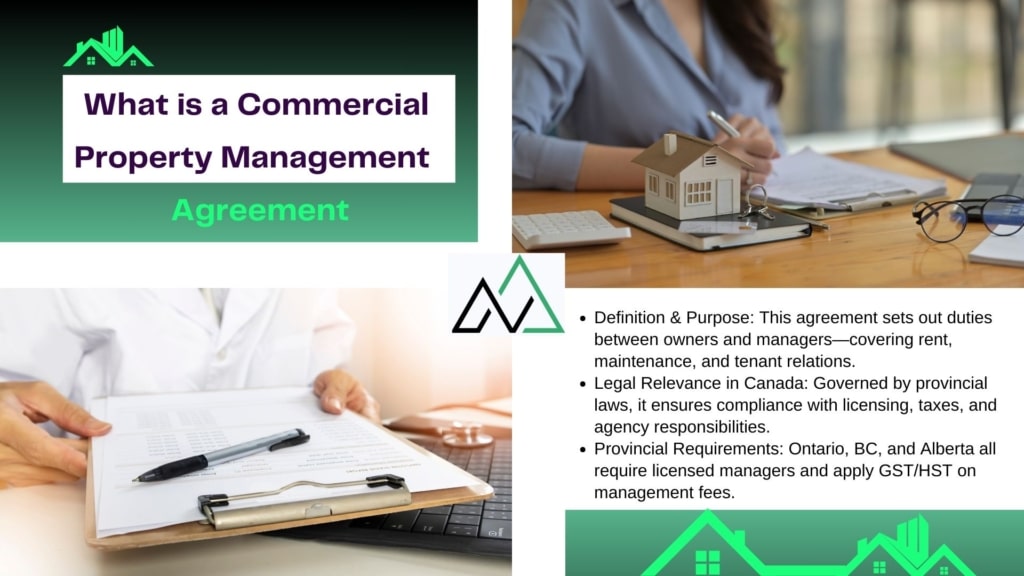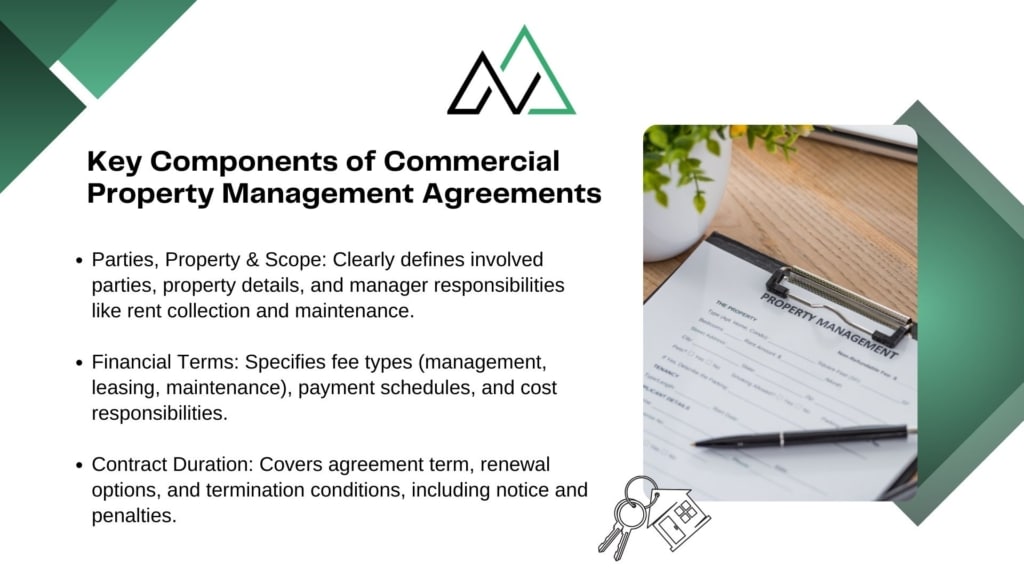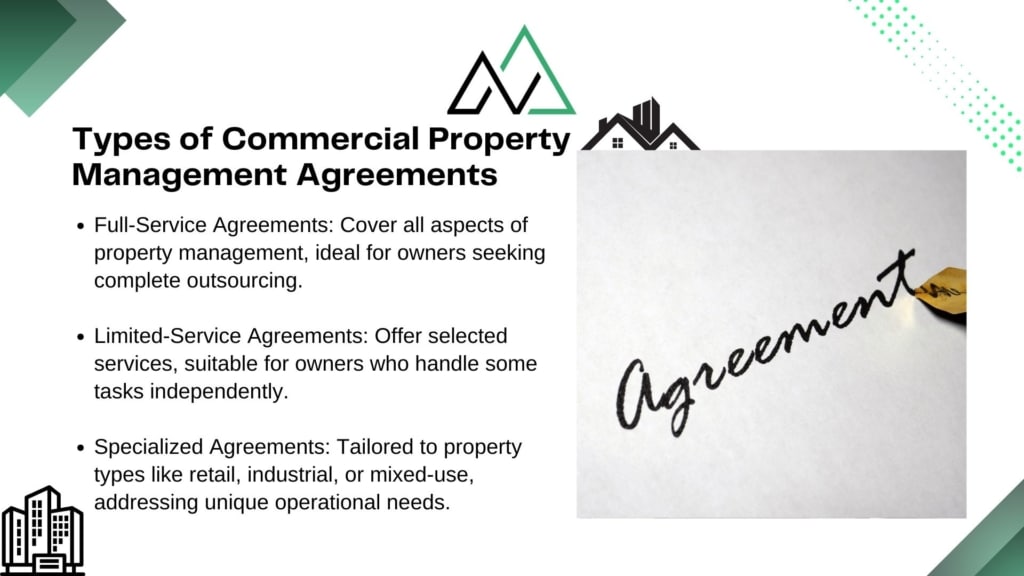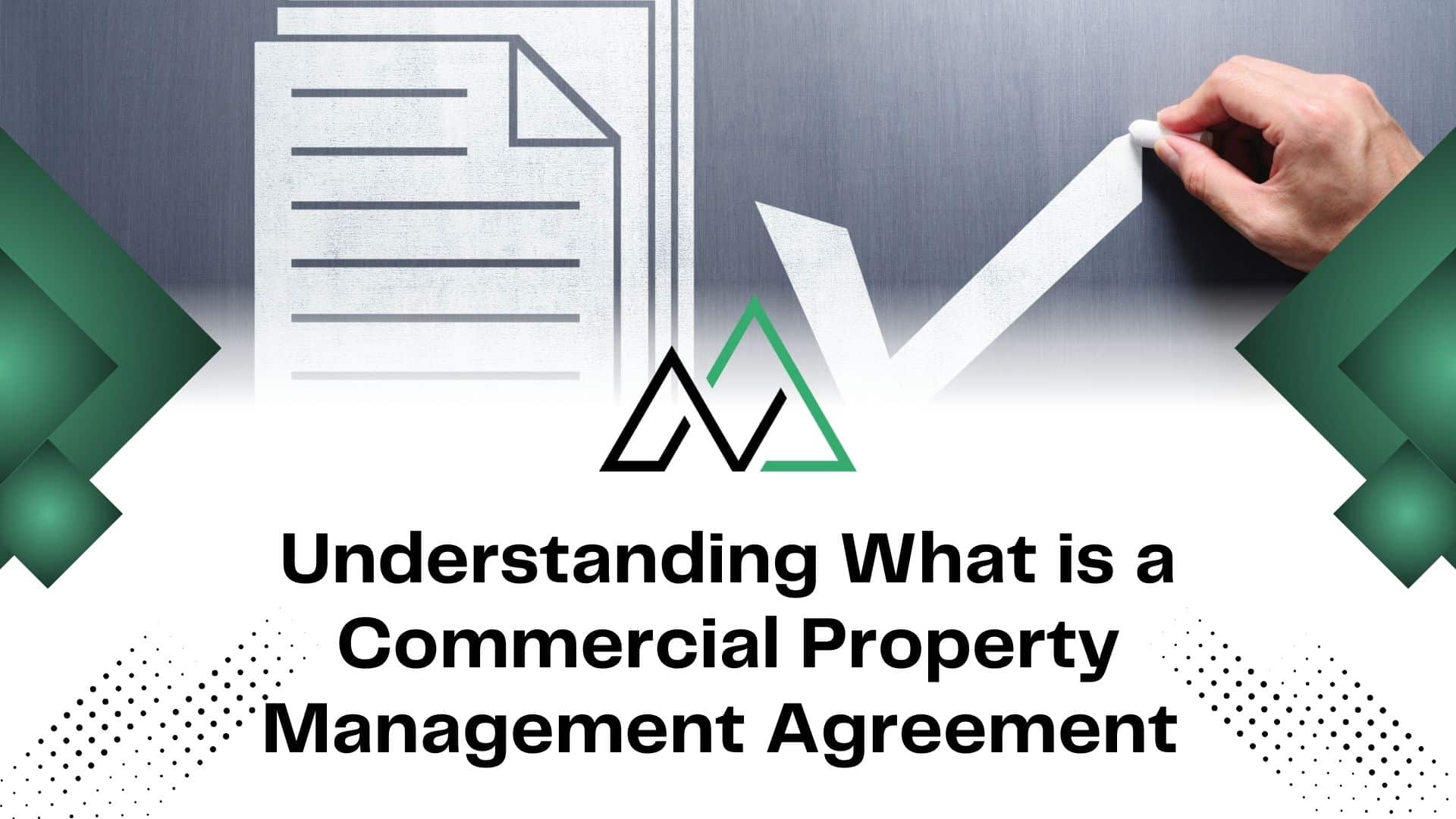In Canada, the commercial real estate market is vast and complex, with thousands of properties being managed daily. A crucial document that facilitates the smooth operation of these properties is the commercial property management agreement.
This legally binding contract between property owners and management companies outlines roles, responsibilities, and expectations, ensuring clarity and legal protection for all parties involved. For property owners and investors, having a well-structured agreement in place is essential to maximize investment value and minimize management issues.
New Homes Alberta provides expert guidance on crafting effective commercial property management agreements. For more information, you can contact them at (403)305-9167.
Key Takeaways
- Understand the role of a commercial property management agreement in defining property management responsibilities.
- Learn how these agreements protect the interests of property owners and managers.
- Discover the importance of clarity in outlining roles and expectations.
- Find out how a well-structured agreement can prevent misunderstandings and disputes.
- Get insights into maximizing investment value through effective property management.
What is a Commercial Property Management Agreement

Commercial property management agreements are legally binding contracts that define the relationship between property owners and managers. These agreements are crucial in the Canadian real estate market, where the legal framework governing property management is complex and varies by province.
Definition and Purpose
A commercial property management agreement is designed to outline the terms and conditions under which a property manager operates on behalf of the property owner. The primary purpose of this agreement is to establish a clear understanding of the roles, responsibilities, and expectations of both parties. It covers aspects such as property maintenance, tenant relations, rent collection, and financial reporting.
Legal Significance in Canada
In Canada, these agreements hold significant legal weight and are governed by provincial real estate and contract laws. The legal significance can be understood through several key aspects:
- Compliance with provincial regulations regarding property management licensing and tenant rights.
- Addressing specific legal considerations such as GST/HST tax implications.
- Establishing the property manager as a legal agent of the owner.
- Understanding the legal framework is crucial for resolving disputes and determining liability.
The table below summarizes key legal considerations for commercial property management agreements in different Canadian provinces:
| Province | Licensing Requirements | Tax Implications |
|---|---|---|
| Ontario | Must be licensed under the Real Estate and Business Brokers Act | GST/HST applicable on management fees |
| British Columbia | Requires a license under the Real Estate Services Act | GST applicable on management fees |
| Alberta | Must be licensed under the Real Estate Act | GST applicable on management fees |
Key Components of Commercial Property Management Agreements

Understanding the key components of a commercial property management agreement is essential for both property owners and managers to ensure a successful partnership. These agreements are foundational documents that outline the responsibilities, terms, and conditions of the management arrangement.
Identification of Parties and Property Details
A commercial property management agreement must clearly identify the parties involved and provide detailed information about the property. This includes the legal names and contact information of the property owner and the management company, as well as a detailed description of the commercial property being managed.
Scope of Services and Responsibilities
The agreement should comprehensively outline the scope of services to be provided by the property management company. This includes rent collection, maintenance responsibilities, tenant relations, and other duties. Clearly defining these responsibilities helps prevent misunderstandings and ensures that the property is managed effectively.
Financial Terms and Fee Structures
Financial terms and fee structures are critical components of a commercial property management agreement. The agreement should specify the management fees, how they are calculated, and the frequency of payment. It should also outline any additional costs or expenses that the property owner is responsible for.
| Fee Type | Description | Frequency |
|---|---|---|
| Management Fee | Percentage of gross revenue | Monthly |
| Leasing Fee | Commission on new leases | Upon lease signing |
| Maintenance Fee | Cost of maintenance services | As incurred |
Term, Renewal, and Termination Clauses
The term, renewal, and termination clauses are vital elements of the agreement. The term specifies the duration of the agreement, while renewal clauses outline the process for extending the agreement. Termination clauses detail how the agreement can be ended by either party, including notice periods and any penalties for early termination. A well-structured termination clause is crucial for protecting the interests of both parties.
- The term section establishes the duration of the management agreement, typically ranging from one to five years.
- Renewal clauses outline the conditions for extending the agreement, including whether renewal is automatic or requires written confirmation.
- Termination clauses specify how either party can end the agreement, including required notice periods and penalties for early termination.
Types of Commercial Property Management Agreements

Commercial property owners must understand the different types of management agreements available to make informed decisions. The right agreement can significantly impact the success of their investment.
Full-Service Management Agreements
Full-service management agreements provide comprehensive management for commercial properties. These agreements cover a wide range of services, including rent collection, maintenance, and tenant relations, making them ideal for property owners who want to outsource all aspects of property management.
Limited-Service Agreements
Limited-service agreements, on the other hand, offer more flexibility by allowing property owners to select specific services they need. This type of agreement is beneficial for owners who may have the resources to handle some management tasks in-house.
Specialized Commercial Agreements
Specialized commercial property management agreements are tailored to specific types of commercial properties, such as retail centers, medical buildings, industrial facilities, or mixed-use developments. For instance, retail property agreements often include provisions for common area maintenance (CAM) and marketing strategies. Industrial property agreements may focus on the maintenance of loading docks and compliance with environmental regulations. Office building management agreements typically address tenant improvement allowances and professional building security. Mixed-use property agreements are complex, as they must address the different management needs of various property components within a single development.
By understanding the different types of commercial property management agreements, property owners can choose the one that best suits their needs, ensuring effective management of their properties.
Essential Responsibilities Outlined in Management Agreements
Effective commercial property management agreements outline the essential responsibilities of both property managers and owners. These agreements are crucial for the smooth operation of commercial properties, ensuring that all parties understand their roles and obligations.
Property Manager’s Duties
The property manager plays a vital role in the day-to-day operations of the commercial property. Their duties include:
Tenant Relations and Rent Collection
Managing tenant relations effectively is crucial for maintaining high occupancy rates and ensuring timely rent payments. Property managers must handle tenant inquiries, resolve issues, and oversee the rent collection process.
Maintenance and Repairs
Property managers are responsible for maintaining the property’s condition, including scheduling routine maintenance and addressing repair needs promptly. This helps preserve the property’s value and ensures a safe environment for tenants.
Financial Reporting and Compliance
Accurate financial reporting is essential for property owners to make informed decisions. Property managers must provide regular financial statements and ensure compliance with relevant laws and regulations.
Property Owner’s Obligations
While property managers handle daily operations, property owners have their own set of obligations. These include providing necessary documentation, making timely decisions, and ensuring that the property is adequately funded for maintenance and repairs.
Decision-Making Authority and Limitations
The decision-making authority section of a commercial property management agreement defines the limits of the manager’s authority. For instance, some owners may allow their management company to approve vendor contracts up to a certain amount without needing further approval. Key aspects include:
- Establishing clear boundaries regarding what decisions the property manager can make independently and what requires owner approval or consultation.
- Typical spending thresholds that authorize managers to approve routine expenditures up to a specified dollar amount without prior owner approval.
- Outlining the process for obtaining owner approval when required, including response timeframes to prevent delays in necessary property operations or emergency situations.
- Addressing leasing parameters, including the manager’s ability to negotiate lease terms, rental rates, concessions, and tenant improvement allowances within established guidelines.
- Clarifying the manager’s authority regarding legal matters, such as engaging legal counsel on the owner’s behalf for lease enforcement, evictions, or other property-related legal issues.
How to Create an Effective Commercial Property Management Agreement
To develop a comprehensive Commercial Property Management Agreement, one must consider multiple aspects. This involves understanding the roles and responsibilities of both the property owner and the property manager.
Customizing Templates for Your Specific Needs
Using a commercial property management agreement template can be a good starting point. However, it’s crucial to customize it according to your specific needs. Collaborating with experienced professional property managers like those at New Homes Alberta can provide valuable insights into creating agreements that reflect industry best practices.
Legal Considerations in Canadian Commercial Real Estate
It’s essential to work with an experienced attorney who understands the regulatory environment in Canada. They can help draft or review the agreement to ensure it complies with local laws and protects both parties.
Working with Professional Property Managers
Property managers can help identify the specific provisions needed for your property type. When selecting a property management company, consider their track record, references, and communication style. Discussing your expectations openly with potential property managers before drafting the agreement helps ensure that the final document accurately reflects the working relationship you envision.
New Homes Alberta’s team of professional property managers can be reached at (403)305-9167 to discuss your specific commercial property management needs and help develop an agreement that protects your interests.
Conclusion: Maximizing Value Through Professional Management
The foundation of a successful property management relationship lies in a carefully crafted management agreement. A well-structured commercial property management agreement provides clarity, legal protection, and a framework for effective property operations. By defining roles, responsibilities, and expectations clearly, these agreements help prevent misunderstandings and disputes. Commercial property owners who invest in comprehensive management agreements typically experience better property performance and reduced management issues. For expert guidance, contact New Homes Alberta at (403)305-9167. Regularly reviewing and updating your property management agreement ensures it remains relevant and effective in serving your property’s changing needs.
FAQ
What are the primary responsibilities of a property manager under a management agreement?
A property manager’s duties typically include rent collection, maintenance and repairs, tenant relations, and property inspections, as outlined in the management agreement.
How are fees structured in a commercial property management agreement?
Fees can vary, but common structures include a percentage of gross rents, a flat fee, or a combination of both, depending on the services provided and the terms negotiated between the parties.
Can a property owner terminate a management agreement, and if so, under what conditions?
Yes, a property owner can typically terminate a management agreement with notice, as specified in the agreement’s termination clauses, which may include conditions such as breach of contract or failure to meet performance standards.
What are the key differences between full-service and limited-service management agreements?
Full-service agreements involve comprehensive management services, including rent collection, maintenance, and tenant relations, while limited-service agreements may focus on specific tasks, such as rent collection or property inspections, depending on the needs of the property owner.
How do commercial property management agreements address issues related to tenant relations and lease enforcement?
These agreements typically outline the property manager’s authority to handle tenant relations, including lease negotiations, rent collection, and dispute resolution, to ensure effective management of the property.
What are the implications of a property manager’s decision-making authority under a management agreement?
The property manager’s decision-making authority is typically defined in the agreement, specifying the limits of their power to make decisions regarding the property, such as repairs, tenant screening, and lease agreements.
How do management agreements ensure compliance with relevant laws and regulations?
Management agreements often include provisions requiring the property manager to comply with applicable laws, regulations, and industry standards, protecting the property owner’s interests and minimizing potential liabilities.
Can a commercial property management agreement be renewed, and if so, how?
Yes, many agreements include renewal clauses that outline the terms and conditions for extending the agreement, which may involve renegotiating fees, services, or other provisions.





